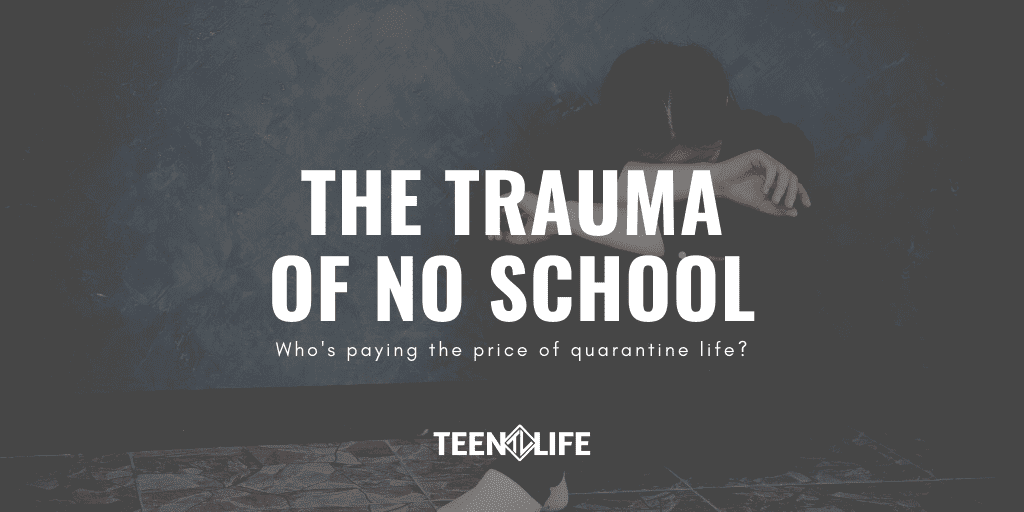It’s been 8 weeks. Eight weeks since life felt “normal.” Eight weeks since my kids went to school, since my husband and I have been out for a date, since I worked in the same location as my co-workers. Eight weeks filled with fun memories with my husband and kids. Eight weeks filled with hard decisions, fighting siblings, and days spent trying to spin all of the plates. Eight weeks filled with joy and guilt and frustration all mixed together. While eight weeks seems so long, in many ways, I also know that this too will pass. That the hard days will give way to better days.
However, for many students, the last eight weeks have looked very different than for my family and me. Truthfully, traumatic might be a better word to describe it.
I read an NPR article this past week entitled Closed Schools Are Creating More Trauma For Students. This article put into words what so many of us at Teen Life and so many of our school partners are thinking and saying. Closing schools is traumatic for so many of the students that we as facilitators at Teen Life interact with each week. For many of our students, school is one of the few places they feel safe and seen. One of the few places where there is a caring adult who is willing to help when life seems overwhelming. A place where someone is available to help process feelings in contrast to a place where students can be easily triggered.
Between closed schools, social isolation, food scarcity and parental unemployment, the coronavirus pandemic has so destabilized kids’ support systems that the result, counselors say, is genuinely traumatic.
Schools provide much needed “check-ins” for students of all ages. Cook Children’s recently reported that they had seen 6 cases of severe child abuse in one week as the stay at home order began, when they typically see that many cases over the span of a month.
So, with all of this potential trauma, what do we do now? Here are a few ideas.
- Maintain some level of human connection – Zoom calls, phone calls, FaceTime, MarcoPolo – whatever works for you. This applies to adults and students alike.
- Check in with the students you know. Text, call, interact on socials. If you are a parent, take a few extra minutes to talk about what concerns your child has and what they wish for or miss the most.
- Normalize the feelings. It’s normal and appropriate to be frustrated or sad or mad. Or to be all of those at once. Help the students you live with and interact with remember that as Franciene Sabens states in the NPR article: “It’s OK to not be OK. I mean, most of the world is not OK right now.”
- Lastly, start planning for how to transition back to school, even when that seems an eternity away. Students will still be figuring out what happens next and how has life changed after many months away from “normal.”
“School leaders should right now be planning for the future, asking how they can best support students when they come back to school, Laura Ross, [a middle school counselor in Lawrenceville, Ga] says, “making sure that we’re prepared to deal with some of those feelings that are going to increase — of anxiousness, of grief, of that disconnect that they had for so long.”
I cannot tell you if or when life will look like it did before COVID-19. However, we at Teen Life hope that you are able to continue to serve the students in your lives for the next 8 weeks, 8 months, or 8 years despite the trauma experienced and the inevitable challenges that lay ahead today and in the future.

Beth Nichols
Program Director
With her background in social work and experience as a mom of 4, Beth’s perspective is invaluable. She has had the opportunity in both her personal and professional life to encounter youth from a variety of situations.
